When I was a kid in the 1980’s, everyone thought that Anzac Day was on its way out as an important part of our culture. ‘Year after year, more old men disappear’, Eric Bogle sang, and it was accepted that it was just a matter of time until there would be no one left to march – and that was OK. The odd backpacker made the side trip to the remains of the battlefields while in Turkey, but they were unlikely to refer to it as a pilgrimage. Fewer Australians had family connections to a First World War digger, and the attitude to returned Vietnam veterans, questions about the day’s relevance to an increasingly multicultural society, and concerns about glorification of war all had an impact.
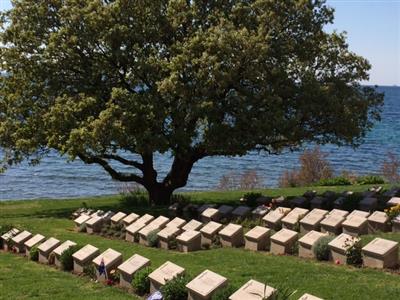
And yet, as I stood in the stands at the dawn service at Anzac Cove last year – exactly 100 years after that first landing – watching a flotilla of battleships along the horizon as the mist rose, I was surrounded by people for whom Anzac Day was a real, current, significant occasion, regardless of whether they had a personal connection to the actual historical event.
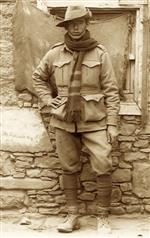 My grandfather didn’t leave any letters or diaries of his experiences at Gallipoli (or later in France), and he died before I was born. I knew he lied about his age (he was 15) to sign up, and he used an assumed name (which made tracking him down though his service record tricky – but we did it!), and that he came back from war very damaged and his family suffered for it.
My grandfather didn’t leave any letters or diaries of his experiences at Gallipoli (or later in France), and he died before I was born. I knew he lied about his age (he was 15) to sign up, and he used an assumed name (which made tracking him down though his service record tricky – but we did it!), and that he came back from war very damaged and his family suffered for it.
But I don’t need a grandfather who fought at Gallipoli to feel the significance of commemorating the 25th of April. Anzac Day is bigger than remembering your personal loss or a memorial of one battle in a single theatre of war. It’s a day to remember all the lives have been lost through conflict, the stories that were left unwritten, the impact war has on those who return, and the way it can change who we are and how we see ourselves. And that is reflected in services and marches held around Australia, New Zealand, France, Britain and elsewhere.
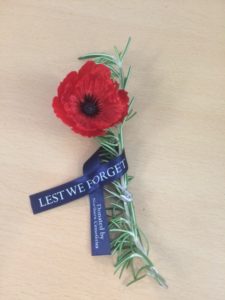 Gallipoli as a place has become an incredibly important part of Australia and New Zealand’s story, and a huge part of that comes from the Turkish people themselves and how they have generously shared a sacred place to them with outsiders, and made them family. We talk about Gallipoli being the birthplace of Australia, but it is, even more so, that of modern Turkey. The blood of over 85,000 Ottoman soldiers who died defending their homeland was shed on the Gallipoli peninsula. And yet, everywhere I saw the huge banners the Turkish people erected for their commemoration of the 100 year anniversary of the campaign (which they won) with the slogan ‘Peace is Possible’ and depicting the image (famously cast in bronze) of an Ottoman soldier carrying a wounded New Zealand soldier back to his trench. This is especially moving considering the Syrian civil war on Turkey’s doorstep and their position as a country that straddles two continents.
Gallipoli as a place has become an incredibly important part of Australia and New Zealand’s story, and a huge part of that comes from the Turkish people themselves and how they have generously shared a sacred place to them with outsiders, and made them family. We talk about Gallipoli being the birthplace of Australia, but it is, even more so, that of modern Turkey. The blood of over 85,000 Ottoman soldiers who died defending their homeland was shed on the Gallipoli peninsula. And yet, everywhere I saw the huge banners the Turkish people erected for their commemoration of the 100 year anniversary of the campaign (which they won) with the slogan ‘Peace is Possible’ and depicting the image (famously cast in bronze) of an Ottoman soldier carrying a wounded New Zealand soldier back to his trench. This is especially moving considering the Syrian civil war on Turkey’s doorstep and their position as a country that straddles two continents.
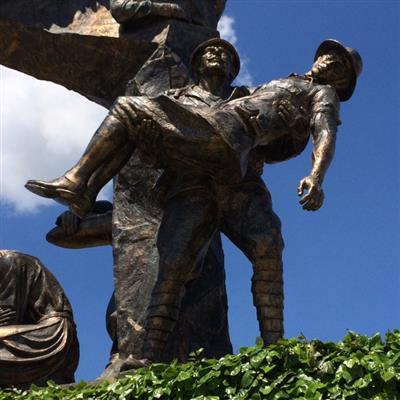
As I reflect on past sacrifices made in the name of our country this Anzac Day, I can’t forget that sacrifices are still be made by Australian soldiers and military personnel today. Anzac Day is a day we can honour them, too, and assist current and future generation of diggers.
x Fiona
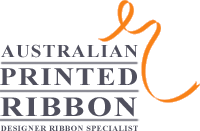
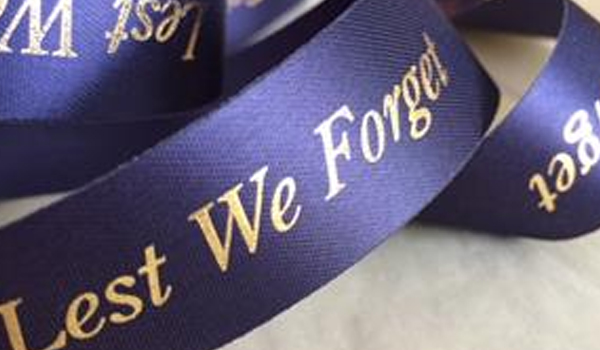
Leave A Comment
You must be logged in to post a comment.